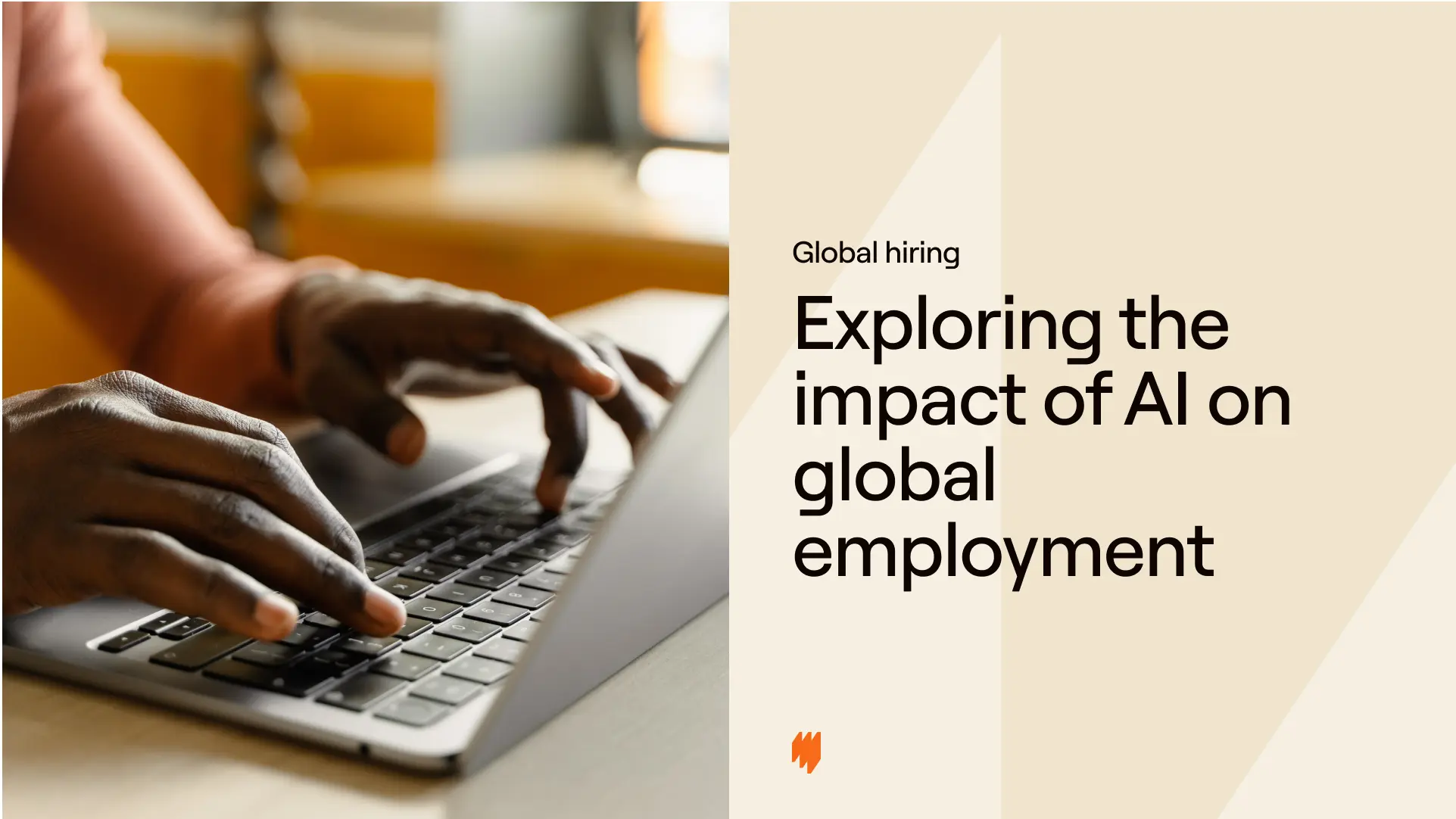Few innovations carry as much promise and uncertainty as AI. From transforming industries to reshaping daily life, its impact is profound. And, with Microsoft and Google recently pledging to increase their capital spending on AI technology, it’s safe to say that its reach could go even further.
One of the most pressing questions right now is how AI will shape the future of global employment.
Will it be a force for good, creating new job opportunities and enhancing productivity?
Or will it lead to widespread job displacement and economic upheaval?
Understanding the multifaceted effects of AI on employment is crucial to planning your recruitment strategy and determining which skills your company needs next. That’s why, in this article, we delve into AI’s challenges, opportunities, and overall impact on the workforce.
The implications of AI on global employment
AI’s rapid advancement is profoundly transforming the workforce and tech recruitment. On one hand, it opens doors to increased productivity and efficiency. On the other hand, it poses challenges like job displacement and employee reskilling.
Understanding these dual effects is crucial for navigating an AI-driven work environment.
Job losses
Tech giants aren’t the only ones gearing up to embrace AI. A staggering 92% of organizations plan to adopt an AI-first model by next year to stay competitive. And this surge in AI adoption also raises concerns about the potential job displacement of millions of workers.
Goldman Sachs economists, Joseph Briggs and Devesh Kodnani, estimate that roughly 300 million jobs could be exposed to AI automation, with half of employees’ workloads being replaced altogether.
Tasks replaced by AI include:
- Administration
- Retail checkouts
- Customer service
- Basic analytical roles
- Translation
However, the impact of automation won’t necessarily equate to thousands of layoffs. Instead, many companies are looking to integrate AI to complement human skills, freeing employees from repetitive tasks and enabling them to focus on more strategic work such as:
- Developing innovative product strategies
- Analyzing complex data to gain business insights
- Fostering high-level client relationships
By leveraging AI in this way, companies can unlock their employees’ full potential, enabling them to redirect their efforts and attention toward the tasks that drive progress in achieving company goals.
Increased productivity
AI significantly boosts productivity since repetitive and time-consuming tasks don’t occupy the bulk of employees’ time. This shift improves efficiency and enables employees to invest their time in meaningful tasks that drive business growth, like the strategic work listed above.
AI tools also enhance productivity by providing real-time insights and recommendations to help employees make informed decisions quickly, leading to faster problem-solving.
Human-centric skills are still important
Harnessing the combined power of human workers and AI requires people with AI skills. And 63% of employees feel they lack the necessary skills or require a new skill set to utilize AI effectively.
As the demand for AI-related skills grows, such as AI prompt engineering, auditing, and machine learning, organizations realize the importance of uniquely human skills.
Companies are actively seeking to upskill/ reskill and hire employees with:
- Interpersonal skills
- Effective communication
- Conflict resolution
- Critical and analytical thinking
These human-centric skills are crucial to seizing AI’s benefits, as they complement AI’s capabilities, which often lack the nuanced understanding of contextual awareness.
The human element is essential to fully interpret raw data and determine the accuracy of AI results. Employees with robust contextual competencies can navigate AI’s limitations, implications, and potential impact on work outcomes.
Capitalizing on the benefits of AI
The impact of AI on employment is complex, nuanced, and multifaceted. While AI has the potential to relieve workers of mundane tasks, it is not poised to replace human workers entirely.
Instead, focus on reskilling and upskilling your workforce to ensure they can effectively collaborate with AI and unlock its full potential. As companies embark on this journey of workforce transformation, it is vital to assess the impact AI will have on your company.
Questions to help assess AI’s impact:
- What new roles and skills will you require?
- Which jobs can be automated?
- What type of training and development will get your employees up to speed?
To leverage the power of AI fully, you may also need to hire new talent — a challenge many companies are grappling with as these skills become more in demand. Partnering with an Employer of Record (EOR) provides access to a diverse global talent pool to help you assemble your winning team.
Without needing to set up a local entity, you can hire talent wherever they are. Then, you can manage global payroll, benefits, contracts, and more with a single solution.
Ready to future-proof your workforce?






